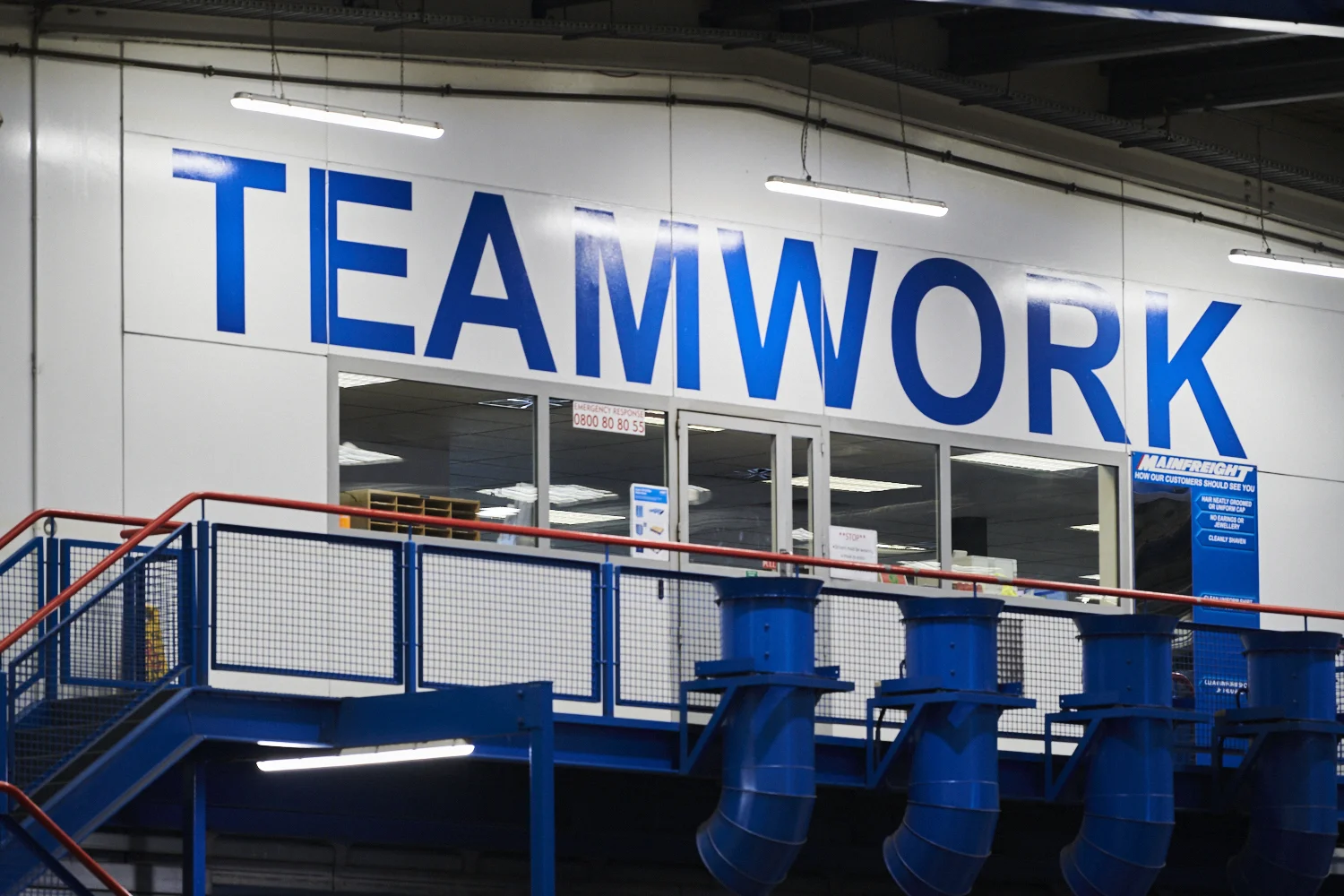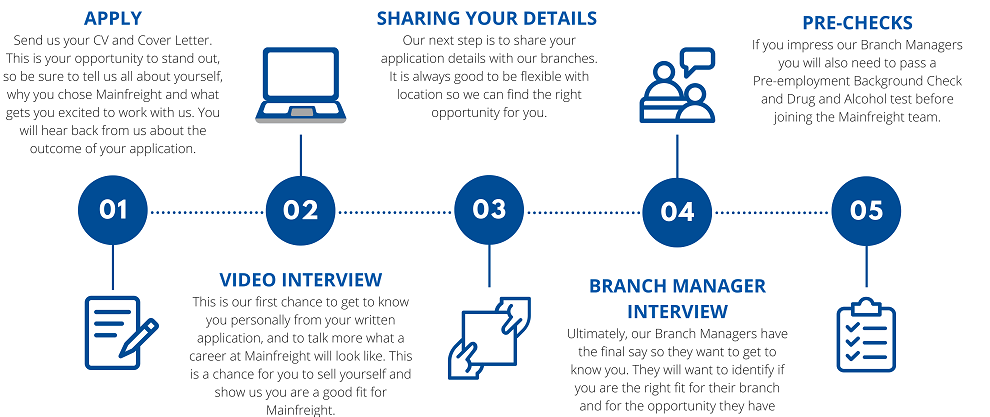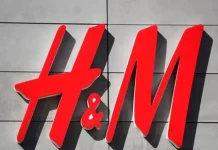Apply Mainfreight Franchise , a global logistics provider, operates in freight forwarding, warehousing, and transport services. While Mainfreight primarily operates through company-owned branches, in some regions, it may engage independent contractors or owner-drivers under a franchise-like model. The process to apply for a Mainfreight franchise or owner-driver opportunity typically involves the following steps:
Â
- Research and Initial Inquiry:
- Visit Mainfreight’s official website (mainfreight.com) or contact their regional office to inquire about franchise or contractor opportunities. Mainfreight may not always advertise franchise opportunities openly, so direct outreach is key.
- Submit an expression of interest, including your business background, financial capacity, and experience in logistics or transport. Highlight any prior experience in freight, logistics, or management, as this aligns with Mainfreight’s emphasis on operational excellence.
- Business Plan Submission:
- Prepare a comprehensive business plan outlining your proposed operations, including fleet size, service area, and financial projections. Mainfreight values partners who align with their “100-year vision” of long-term growth and customer focus.
- Include details on how you plan to meet Mainfreight’s standards for safety, compliance, and customer service.
- Application and Review:
- Submit a formal application, which may require documentation such as proof of business registration, financial statements, and a valid driver’s license or commercial vehicle permits.
- Mainfreight’s team will review your application to assess alignment with their brand values, operational capacity, and market needs.
- Interview and Assessment:
- If shortlisted, you’ll undergo an interview process (detailed below) to evaluate your suitability. Mainfreight prioritizes candidates with a strong work ethic and commitment to their culture of teamwork and innovation.
- Financial due diligence may be conducted to ensure you have the capital to invest in vehicles, equipment, or operational costs.
- Contract Negotiation and Signing:
- Upon approval, Mainfreight will provide a franchise or contractor agreement outlining terms, responsibilities, and expectations. This contract will detail payment structures, service standards, and compliance requirements.
- Consult a legal professional to review the agreement before signing to ensure clarity on obligations and liabilities.

Employment Agreement Contract (Apply Mainfreight Franchise)
Mainfreight’s employment or contractor agreements for owner-drivers or franchisees are legally binding documents that outline the relationship between the company and the contractor. Key components include:
- Parties Involved:
- The agreement identifies Mainfreight as the client and the individual or business entity as the contractor. It clarifies that the contractor operates as an independent entity, not an employee, meaning Mainfreight does not provide benefits like health insurance or paid leave.
- Scope of Services:
- Specifies the transportation services (e.g., freight delivery, logistics) and operational requirements, such as delivery schedules, routes, and cargo handling.
- Contractors are responsible for vehicle maintenance, fuel, and compliance with safety regulations.
- Payment Terms:
- Outlines compensation, typically based on a per-load or per-kilometer rate. Payment schedules (e.g., weekly, monthly) and invoicing requirements are detailed.
- Includes clauses on default (e.g., failure to deliver on time) and remedies, such as contract termination or penalties.
- Insurance and Liability:
- Contractors must maintain automobile liability insurance (e.g., minimum coverage for bodily injury and property damage) and general liability insurance. Mainfreight may require proof of insurance naming them as an additional insured.
- The contractor assumes responsibility for cargo loss or damage during transport.
- Confidentiality and Non-Compete:
- Includes clauses protecting Mainfreight’s proprietary information and restricting contractors from working with direct competitors during the contract term.
- Termination:
- Specifies conditions for termination, such as material breach (e.g., failure to meet service standards) or mutual agreement with prior notice (e.g., 30 days).
Â
Adding Contractor Vehicles (Truck, Van, Car)
To add vehicles to a Mainfreight contractor agreement:
- Vehicle Specification:
- Provide details of the vehicle(s) (e.g., make, model, year, capacity) to ensure they meet Mainfreight’s standards for safety and reliability.
- Vehicles must comply with local regulations, such as weight limits and emissions standards.
- Registration and Permits:
- Register vehicles with the relevant transport authority (e.g., FMCSA in the U.S., NZTA in New Zealand). Obtain a USDOT number for interstate operations or equivalent regional permits.
- Secure additional permits, such as International Registration Plan (IRP) credentials for multi-jurisdictional travel or International Fuel Tax Agreement (IFTA) permits for fuel tax reporting.
- Insurance Requirements:
- Obtain automobile liability insurance for each vehicle, with minimum coverage as specified in the contract (e.g., $1 million combined single limit for bodily injury and property damage).
- Submit proof of insurance to Mainfreight before operations begin.
- Contract Amendment:
- Update the contractor agreement to include the new vehicle(s). This may require a written amendment signed by both parties, detailing the vehicle’s role and any changes to payment terms.
- Inspection and Compliance:
- Vehicles may need to pass safety inspections or obtain certificates (e.g., inspection certificate) to verify compliance with transport regulations.
Â
Legal Formalities in the Contract
To ensure legal compliance, the contract must address:
- Governing Law:
- Specifies the jurisdiction (e.g., state or country) governing the contract, ensuring compliance with local laws.
- Licensing and Permits:
- Contractors must hold valid licenses (e.g., commercial driver’s license, contractor license) and permits for operating vehicles. Mainfreight may verify these credentials.
- Tax Compliance:
- Contractors are responsible for paying income taxes, self-employment taxes, and other applicable taxes. Mainfreight does not withhold taxes, as contractors are independent.
- Safety and Regulatory Compliance:
- Compliance with federal and state regulations (e.g., FMCSA, DOT) is mandatory. This includes filing for a USDOT number, maintaining cargo insurance (for common carriers), and adhering to safety standards.
- Force Majeure:
- Includes clauses excusing non-performance due to unforeseen events like natural disasters or strikes.
Â
Number of Transport Vehicles per Employee
Mainfreight’s policies on the number of vehicles per contractor or employee vary by region and contract type. Typically:
- Owner-Drivers: An individual contractor may operate one or two vehicles (e.g., truck, van) depending on their capacity and contract terms. Mainfreight may limit the number based on operational needs or the contractor’s ability to manage multiple vehicles safely.
- Franchisees: If operating as a franchisee or larger contractor, you may manage a fleet of vehicles (e.g., 3–10 trucks or vans), depending on the scale of operations and market demand. The exact number is negotiated during the contract phase and depends on Mainfreight’s regional requirements.
- Employees: If employed directly by Mainfreight (not as a contractor), employees typically do not manage personal vehicles but operate company-owned vehicles as assigned.
For precise limits, consult Mainfreight’s regional office or the contractor agreement, as this varies by market and contract scope.
Â
Interview Process
Mainfreight’s interview process for franchisees, contractors, or employees emphasizes cultural fit and operational competence:
- Initial Screening:
- Candidates submit resumes or business proposals highlighting relevant experience in logistics, transport, or management.
- Mainfreight assesses alignment with their values of teamwork, innovation, and customer focus.
- Interview Stages:
- First Interview: Conducted by a regional manager to discuss experience, business plans, and commitment to Mainfreight’s standards.
- Second Interview: May involve senior management or operational teams to evaluate technical skills and operational knowledge.
- Practical Assessment: For drivers or contractors, a driving test or operational simulation may be required to assess competence.
- Cultural Fit:
- Mainfreight emphasizes a “family-like” culture. Interviews assess your ability to work collaboratively and uphold their reputation for reliability.
Â
Background Check and Police Clearance Certificate (PCC)
Mainfreight conducts thorough background checks to ensure safety and compliance:
- Background Check Process:
- Criminal Records: Checks federal, state, and local criminal records to verify no serious offenses.
- Driving Records: For drivers or contractors, Mainfreight verifies driving history to ensure a clean record and valid licenses.
- Employment and Education Verification: Confirms prior employment or qualifications, especially for managerial or franchise roles.
- Address Verification: Validates past addresses to ensure accurate background screening.
- Police Clearance Certificate (PCC):
- A PCC is required in many regions to confirm no criminal convictions. To obtain a PCC:
- Apply through the local police department or online portal (e.g., Ministry of Justice in New Zealand, FBI in the U.S.).
- Submit identification (e.g., passport, driver’s license), fingerprints, and application fees.
- Processing typically takes 2–4 weeks, depending on the jurisdiction.
- Mainfreight may require the PCC before finalizing the contract to ensure compliance with safety and legal standards.
- A PCC is required in many regions to confirm no criminal convictions. To obtain a PCC:
- Compliance with FCRA:
- Background checks are Fair Credit Reporting Act (FCRA)-compliant, ensuring transparency and candidate consent.
Â
Conclusion
Applying for a Mainfreight franchise or contractor role involves a structured process of inquiry, application, interviews, and contract negotiation. The employment agreement clarifies the independent contractor status, payment terms, and compliance requirements. Adding vehicles requires registration, insurance, and contract amendments, while legal formalities ensure regulatory adherence. The number of vehicles per contractor varies by agreement, and thorough background checks, including a PCC, are mandatory. For specific details, contact Mainfreight’s regional office or visit mainfreight.com. Always consult a legal professional to review contracts and ensure compliance with local laws.





